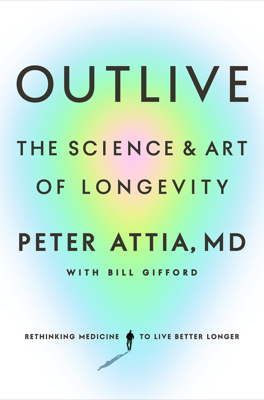Chasing Memory: Understanding Alzheimer’s Disease and Other Neurodegenerative Diseases
Alzheimer's disease is deeply feared due to its severe impact on cognition and identity, making it one of the most persistent health concerns associated with aging. The chapter introduces a patient named Stephanie, who despite being genetically predisposed to Alzheimer's (with two copies of the APOE e4 allele), engages in preventive strategies under the guidance of Peter Attia.
Alzheimer’s is historically notorious for its complexity, often diagnosed too late for effective intervention. The condition Stephanie faces allows the discussion of several key points about Alzheimer’s and other neurodegenerative diseases, such as Lewy body dementia and Parkinson’s disease.
Role and Risk of APOE Genotyping
The chapter explores the contentious practice of APOE genotyping. Attia argues that understanding a patient's APOE status is beneficial, even if it shows a higher risk for Alzheimer's, as it is crucial for crafting preemptive health strategies.
Metabolic and Vascular Theories Beyond Amyloid
The dominant "amyloid hypothesis" — that Alzheimer's is primarily caused by amyloid-beta accumulation — is questioned given the consistent failure of amyloid-targeting treatments. Alternative theories suggesting vascular issues or metabolic dysfunction, including abnormal glucose metabolism in the brain, are becoming more compelling. This perspective aligns well with the observation that Alzheimer’s shares several risk factors with cardiovascular diseases, underscoring potential vascular contributions to neurodegeneration.
The Implications of APOE e4
The APOE e4 allele enhances risks not solely through its impact on cholesterol transport and glucose metabolism but also by exacerbating conditions conducive to Alzheimer's, such as inflammation and metabolic dysfunctions. Notably, the detrimental effects of APOE e4 might originate from its evolutionary history, where its inflammatory properties may have been advantageous against infections in ancient environments.
Comprehensive Preventive Strategy
The chapter emphasizes a proactive approach to handling the risk of Alzheimer’s, detailing interventions that include dietary adjustments, physical exercise, management of metabolic health, and promotion of good vascular health. Strategies such as adopting a Mediterranean diet, engaging in regular physical activity to boost cognitive and metabolic functions, and improving the quality of sleep are key. The discourse also touches on intriguing potential links between Alzheimer's and other seemingly unrelated factors like oral health and hearing loss.
Moreover, hormonal changes and their effects on women's higher susceptibility to Alzheimer’s are discussed, highlighting the need for precise interventions such as possibly hormone replacement therapy around menopause.
Conclusion on Prevention
The final takeaway is that while our understanding of and ability to intervene in Alzheimer's and related diseases are still developing, a proactive, preventive approach focusing on both metabolic and vascular health offers the best prospective pathway to mitigate risk and delay onset. These strategies should be adopted early, particularly for those with a genetic predisposition like Stephanie, to maximize their efficacy.
